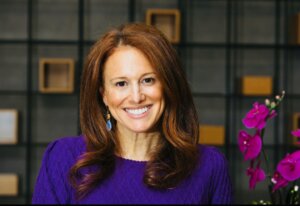Schumer spoke for the majority of American Jews
Only 31% of American Jewish voters have a favorable view of the Israeli prime minister

Senate Majority Leader Chuck Schumer (D-NY) delivers remarks to the press, Feb. 27, 2024 at the White House in Washington, DC. Photo by Roberto Schmidt/Getty Images
Senate Majority Leader Chuck Schumer delivered a speech on Thursday describing “the path forward to secure mutual peace and lasting prosperity for Israelis and Palestinians.” It’s because of his commitment to Israel’s future as a secure, Jewish and democratic state — which is shared by Democrats — that Schumer felt “an immense obligation” to speak out.
Senator Schumer addressed this difficult issue with a refreshing degree of candor consistent with the views of the overwhelming majority of American Jews.
In laying out what he viewed as the major roadblocks to peace, Schumer named Israeli Prime Minister Benjamin Netanyahu, describing him as having “lost his way by allowing his political survival to take precedence over the best interests of Israel.”
While Schumer called for elections in Israel — something critics have questioned — he also made it clear that he wants to see Israel’s democracy function consistent with the will of the Israeli people. Importantly, he explicitly warned against American interference in such an election — “Of course, the United States cannot dictate the outcome of an election, nor should we try. That is for the Israeli public to decide.”
Schumer began the speech by clarifying that while he was speaking for himself — he had not coordinated his remarks with the White House — he was also speaking for “a silent majority [of Jewish Americans] whose nuanced views on the matter have never been well represented.” In other words, he wasn’t just speaking as the first Jewish Majority Leader and highest-ranking Jewish official in U.S. history, but also as a staunch, lifelong supporter of Israel whose views align with mainstream American Jews.
A national poll conducted by the non-partisan Jewish Electorate Institute in early November found that more than 80% of American Jewish voters feel an emotional attachment to Israel similar to that expressed by Senator Schumer, who said, “we love Israel in our bones.” At the same time, our views, like Schumer’s, are “nuanced,” and — just as we can be proud American patriots who disagree with U.S. elected officials -– even the strongest support of Israel does not obviate criticism of its government.
According to the same poll, 91% of Jewish voters agree that one can be both “pro-Israel” and critical of Israeli government policy, and 76% responded that the same applied to criticism of Israel’s conduct of war. Criticism of Israeli government policies and support of Israel are not zero-sum or mutually exclusive — this has been a consistent finding since JEI started polling Jewish voters in 2018. According to a clear trend in the past five years of polling data, the views of self-identified “pro-Israel” Jewish American voters have become less aligned with those of the Netanyahu government the longer he’s stayed in power.
While a mere 31% of American Jewish voters have a favorable view of Netanyahu according to JEI’s November poll, Schumer was not dictating which Israeli leader should be in power. He reiterated that “As a democracy, Israel has the right to choose its own leaders, and we should let the chips fall where they may.” But at the same time, he emphasized, “the important thing is that Israelis are given a choice. There needs to be a fresh debate about the future of Israel after Oct. 7.”
Perhaps the most important statement made by Schumer relates to the path forward and future in this post-Oct. 7 world. Schumer described his clear vision for “a negotiated two-state solution — a demilitarized Palestinian state living side-by-side with Israel in equal measures of peace, security, prosperity, dignity, and mutual recognition,” which is consistent with U.S. policy in consecutive administrations, Republican and Democratic alike (minus the Trump administration), for more than 30 years.
Here too, more than two-thirds of Jewish voters support a comprehensive two-state solution along the lines that Majority Leader Schumer outlined, including a demilitarized Palestinian state, according to a 2022 J Street midterm election night poll.
Recognizing that a two-state solution is not on the immediate horizon, Schumer reminded us all that there is no other viable alternative that results in a Jewish, democratic and secure Israel. He asked the question that opponents — including Netanyahu — of a two-state solution cannot satisfactorily answer: “If Israel were to maintain the status quo and tighten control over Gaza and the West Bank, creating a de facto single state, what expectation can we have that Hamas and its allies lay down its arms?”
At the same time, there must be acknowledgment that Israelis — rightfully traumatized by the horror of Oct. 7 — will only fully accept a two-state solution predicated on a plan that allows them to live safely and securely in their country, without the ongoing threat of violence or terror.
Leader Schumer ended his speech with a reminder that history is watching and it will require courage to end this conflict. By expressing the views of the “silent majority” of American Jews on the Senate floor, Schumer modeled the courage that will be required by Israeli, Palestinian and American leaders to bring about a lasting peace.
Schumer should be applauded for speaking with such conviction, commitment and candor, especially by those he was representing -– not just New Yorkers, but the majority of American Jews.
















